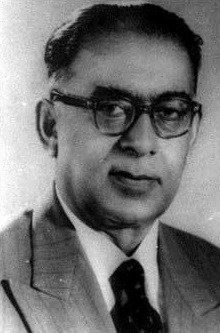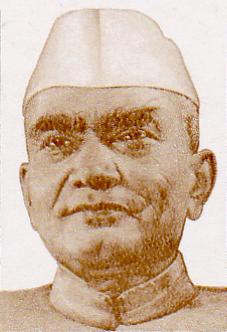|
Shanti Swaroop Dhavan
Shanti Swaroop Dhavan (2 July 1906 – 1978) was an Indian statesman, diplomat and jurist who was the 6th Governor of West Bengal from 19 September 1969 to 21 August 1971. Life and career Dhavan was born on 2 July 1906 to Rai Bahadur Bali Ram Dhavan, and hailed from Dera Ismail Khan, in Khyber-Pakhtunkhwa, Pakistan. He was educated at the Forman Christian College, Lahore, at Emmanuel College, Cambridge (where he became President of the Cambridge Union),"About Rajeev Dhavan" ''rajeevdhavan.com''. Accessed 31 July 2020. and in law at the , Inns of Court, |
List Of Governors Of West Bengal
The Governor of West Bengal is the nominal head of state of the Indian state of West Bengal and a representative of the President of India. The governor is appointed by the president for a term of five years. His official residence is the Raj Bhavan. C. V. Ananda Bose was appointed as the Governor of West Bengal on 23 November 2022. History In 1911 the Imperial capital of India was moved from Calcutta to Delhi and as some compensation to Bengal the lieutenant governor with council gave place to a governor with a council thus completing the circle and reverting to the position which had been obtained 200 years ago. In 1947 India achieved independence and the title of ''Governor of Bengal'' remained. Powers and functions The Governor enjoys many different types of powers: *Executive powers related to administration, appointments and removals, *Legislative powers related to lawmaking and the state legislature, that is Vidhan Sabha or Vidhan Parishad, and *Discretionary powers t ... [...More Info...] [...Related Items...] OR: [Wikipedia] [Google] [Baidu] |
Supreme Court Of India
The Supreme Court of India ( IAST: ) is the supreme judicial authority of India and is the highest court of the Republic of India under the constitution. It is the most senior constitutional court, has the final decision in all legal matters except for personal laws and interstate river disputes, and also has the power of judicial review. The Chief Justice of India is the Head and Chief Judge of the Supreme Court, which consists of a maximum of 34 judges, and has extensive powers in the form of original, appellate and advisory jurisdictions. New judges here are uniquely nominated by existing judges and other branches of government have neglible say as the court follows collegium system for appointments. As the apex and most powerful constitutional court in India, it takes up appeals primarily against verdicts of the High Courts of various states of the Union and other courts and tribunals. It is required to safeguard the fundamental rights of citizens and settles dispute ... [...More Info...] [...Related Items...] OR: [Wikipedia] [Google] [Baidu] |
1906 Births
Events January–February * January 12 – Persian Constitutional Revolution: A nationalistic coalition of merchants, religious leaders and intellectuals in Persia forces the shah Mozaffar ad-Din Shah Qajar to grant a constitution, and establish a national assembly, the Majlis. * January 16–April 7 – The Algeciras Conference convenes, to resolve the First Moroccan Crisis between France and Germany. * January 22 – The strikes a reef off Vancouver Island, Canada, killing over 100 (officially 136) in the ensuing disaster. * January 31 – The Ecuador–Colombia earthquake (8.8 on the Moment magnitude scale), and associated tsunami, cause at least 500 deaths. * February 7 – is launched, sparking a naval race between Britain and Germany. * February 11 ** Pope Pius X publishes the encyclical ''Vehementer Nos'', denouncing the 1905 French law on the Separation of the Churches and the State. ** Two British members of a poll tax collecting ... [...More Info...] [...Related Items...] OR: [Wikipedia] [Google] [Baidu] |
Presidents Of The Cambridge Union
This is a list of presidents of Cambridge Union since its foundation in 1815. 1815–1916 It was resolved at a Private Business Meeting held on Monday, May 8, 1916, to hold no elections for terminal officers in the Easter Term, nor subsequently for the duration of War, and that the functions of the Standing Committee be performed by the ''ex officio'' members of the Committee. 1919–1939 The election of Officers was suspended and a Committee of Management appointed. Chairmen of debates, 1939–1944 1944–present The election of Officers was resumed. ''Presidents elected a second time are marked with *'' ''Presidents who resigned are marked with ‡'' ''Presidents who resigned after being elected but prior to taking office, where known, are marked with ∂'' Notes * After a Presidential Interpretation in 2001, "any officer who resigns before completing their term in office should not be granted the status (of ''ex officio'') unless there are extenuating circumstan ... [...More Info...] [...Related Items...] OR: [Wikipedia] [Google] [Baidu] |
People From Dera Ismail Khan District
A person ( : people) is a being that has certain capacities or attributes such as reason, morality, consciousness or self-consciousness, and being a part of a culturally established form of social relations such as kinship, ownership of property, or legal responsibility. The defining features of personhood and, consequently, what makes a person count as a person, differ widely among cultures and contexts. In addition to the question of personhood, of what makes a being count as a person to begin with, there are further questions about personal identity and self: both about what makes any particular person that particular person instead of another, and about what makes a person at one time the same person as they were or will be at another time despite any intervening changes. The plural form "people" is often used to refer to an entire nation or ethnic group (as in "a people"), and this was the original meaning of the word; it subsequently acquired its use as a plural form of per ... [...More Info...] [...Related Items...] OR: [Wikipedia] [Google] [Baidu] |
Judges Of The Allahabad High Court
A judge is an official who presides over a court. Judge or Judges may also refer to: Roles *Judge, an alternative name for an adjudicator in a competition in theatre, music, sport, etc. *Judge, an alternative name/aviator call sign for a member of the Judge Advocate General's Corps, U.S. Navy *Judge, an alternative name for a sports linesman, referee or umpire * Biblical judges, an office of authority in the early history of Israel Places * Judge, Minnesota, a community in the United States * Judge, Missouri, a community in the United States * The Judge (British Columbia), a mountain in the Columbia Mountains of Canada People * Judge (surname) * Judge Jules, professional name of British DJ and record producer Julius O'Riordan Arts, entertainment, and media Fictional characters * Judge (Buffyverse), a demon in the television series ''Buffy The Vampire Slayer'' * Archadian Judges, from the game ''Final Fantasy XII'' * Judge Holden, from Cormac McCarthy's novel ''Blood M ... [...More Info...] [...Related Items...] OR: [Wikipedia] [Google] [Baidu] |
Alumni Of Emmanuel College, Cambridge
Alumni (singular: alumnus (masculine) or alumna (feminine)) are former students of a school, college, or university who have either attended or graduated in some fashion from the institution. The feminine plural alumnae is sometimes used for groups of women. The word is Latin and means "one who is being (or has been) nourished". The term is not synonymous with "graduate"; one can be an alumnus without graduating ( Burt Reynolds, alumnus but not graduate of Florida State, is an example). The term is sometimes used to refer to a former employee or member of an organization, contributor, or inmate. Etymology The Latin noun ''alumnus'' means "foster son" or "pupil". It is derived from PIE ''*h₂el-'' (grow, nourish), and it is a variant of the Latin verb ''alere'' "to nourish".Merriam-Webster: alumnus .. Separate, but from the ... [...More Info...] [...Related Items...] OR: [Wikipedia] [Google] [Baidu] |
High Commissioners Of India To The United Kingdom
The High Commissioner of India to the United Kingdom is the head of the High Commission of India to the United Kingdom. The High Commission is located at India House in London. History In 1919, a committee chaired by the Marquess of Crewe determined there existed the need to separate the agency work of the India Office from its other political and administrative roles, and recommended the transfer of all such work to "a High Commissioner for India or some similar Indian Governmental Representative in London." It was also felt popular opinion in India would view this as a step towards full Dominion status for India. The Government of India Act that same year upheld the recommendations of the committee, making provision for "the appointment of a High Commissioner by His Majesty by Order in Council, which might delegate to the official any of the contractual powers of the Secretary of State or Indiain Council, and prescribe the conditions under which he should act on behalf of t ... [...More Info...] [...Related Items...] OR: [Wikipedia] [Google] [Baidu] |
Governors Of West Bengal
The Governor of West Bengal is the nominal head of state of the Indian state of West Bengal and a representative of the President of India. The governor is appointed by the president for a term of five years. His official residence is the Raj Bhavan. C. V. Ananda Bose was appointed as the Governor of West Bengal on 23 November 2022. History In 1911 the Imperial capital of India was moved from Calcutta to Delhi and as some compensation to Bengal the lieutenant governor with council gave place to a governor with a council thus completing the circle and reverting to the position which had been obtained 200 years ago. In 1947 India achieved independence and the title of ''Governor of Bengal'' remained. Powers and functions The Governor enjoys many different types of powers: *Executive powers related to administration, appointments and removals, *Legislative powers related to lawmaking and the state legislature, that is Vidhan Sabha or Vidhan Parishad, and *Discretionary powers t ... [...More Info...] [...Related Items...] OR: [Wikipedia] [Google] [Baidu] |
Ajoy Mukherjee
Ajoy Kumar Mukherjee (15 April 1901 – 27 May 1986) was an Indian independence activist and politician who served three short terms as the fourth and sixth Chief Minister of West Bengal. He hailed from Tamluk, Purba Medinipur district, West Bengal. Ajoy Kumar Mukherjee born in Tamluk, West Bengal, India in 1901, he was one of the leaders of Tamralipta Jatiya Sarkar (Tamrlipta National Government), which came into effect on 17 December 1942 during the Quit India Movement, a programme of civil disobedience launched in India in 1942. He was greatly influenced by Swami Vivekananda. Earlier a member of the Indian National Congress, he later became a leader in the Bangla Congress, which co-governed with the Communist Party of India (Marxist) in two United Front governments in the 1960s and 1970s. He held the chief ministerial position in both these governments, from March to November 1967, and again from February 1969 to March 1970. In the year 1967 Ajoy Mukherjee defeated Prafulla ... [...More Info...] [...Related Items...] OR: [Wikipedia] [Google] [Baidu] |
President's Rule
In India, President's rule is the suspension of state government and imposition of direct Union government rule in a state. Under Article 356 of the Constitution of India, if a state government is unable to function according to Constitutional provisions, the Union government can take direct control of the state machinery. Subsequently, executive authority is exercised through the centrally appointed governor, who has the authority to appoint other administrators to assist them. The administrators are usually nonpartisan retired civil servants. When a state government is functioning correctly, it is run by an elected Council of Ministers responsible to the state's legislative assembly (Vidhan Sabha). The council is led by the chief minister, who is the chief executive of the state; the Governor is only a constitutional head. However, during President's rule, the Council of Ministers is dissolved, vacating the office of Chief Minister. Furthermore, the Vidhan Sabha is either pror ... [...More Info...] [...Related Items...] OR: [Wikipedia] [Google] [Baidu] |



_1938.jpg)


